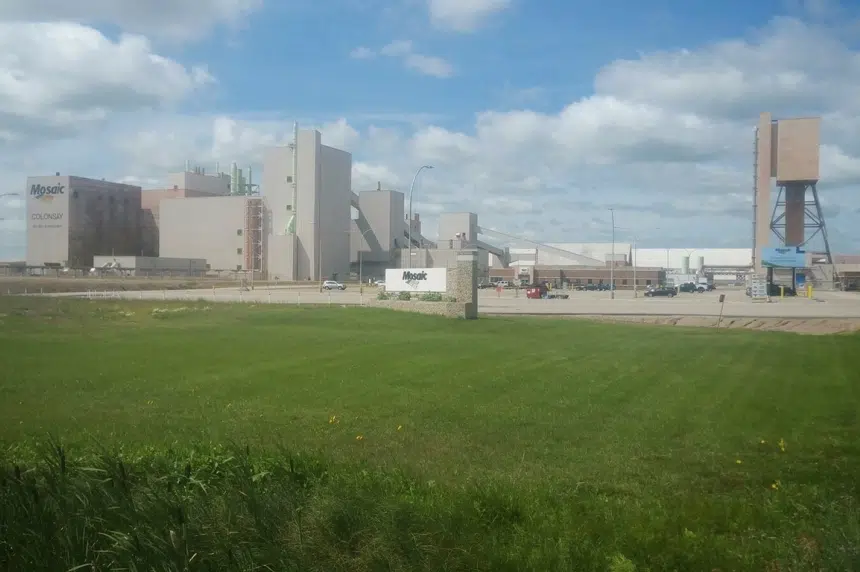People in Colonsay, Sask. are bracing themselves for a slowdown in the wake of layoffs at the nearby Mosaic Colonsay potash mine.
Mosaic handed out temporary layoff notices to 330 unionized employees Wednesday morning. The mine is located roughly 77 kilometres southeast of Saskatoon. Company officials said they expected the workers could come back in January 2017.
Ben Yang’s family has owned a small Chinese restaurant in town for over 25 years. On Wednesday, he was left to lament a room full of empty tables over the lunch hour
“It hurts everyone in this area, not just me,” he said.
Many in Colonsay said they’ve gotten used to the cyclical nature of the potash industry, but no one seemed prepared to see almost the entire workforce at the mine laid off all at once.
Ray Thomas stayed in Colonsay after working as an electrician in the mine for almost 40 years. He said he remembers instances of layoffs involving maybe 50 or 60 people, but they were usually for weeks, not months. He said it’s difficult to imagine how people will hold out for a nearly six-month layoff.
“Maybe now it hurts a little bit more because there’s lots of younger people working there (and) they’ve got families. So in that respect it’s a little bit harder,” he said.
Thomas said almost everyone in the community of about 500 people knows each other, and he expected the community to pull through the downturn.
Mosaic says soft demand behind mine layoffs
“Mosaic made this decision in response to challenging market conditions for potash, and we’re idling our Colonsay mine until the end of the year,” said Sarah Fedorchuk, senior director of public affairs for the company.
The layoffs are temporary and workers could be recalled Jan. 3, 2017.
“Right now we’re seeing lower global potash demand and lower market prices, and it requires that we curtail our production,” Fedorchuk said. “We are watching the market very closely, and if there’s any possibility of bringing back the employees early we will do so.”
The Colonsay mine’s proven annual production capacity is 2.6 million tonnes.
To meet short-term supply needs, Mosaic said it will run lower-cost mines in Esterhazy and Belle Plaine and work off a backlog of potash currently available.
Mike Pulak, staff representative with the steelworkers union, said as people arrived to work Wednesday, they were marshalled into separate rooms to receive the news.
“We’re shocked and awed, dumbfounded I would say, because currently right now we’ve been working without a contract and bargaining for over 15 months now,” Pulak said.
Pulak said most workers had prepared for some time without pay while the mine was scheduled for a six-week maintenance shutdown this summer; but none expected months without work.
He said the union is having difficulty seeing the economic sense in shuttering Colonsay operations, when hourly wages and benefits were currently lower at the mine than others Mosaic owns in Saskatchewan.
“We voted down the contract on Monday by 99.3 per cent,” Pulak said. “We’ve been frustrated with the process, trying to get back to the bargaining table.”
While Mosaic couldn’t comment on contract specifics, it said Colonsay is the highest cost-producing mine in the company’s fleet.
Fedorchuk told CKOM News Wednesday’s decision was in “no way related” to the current labour status.
“A decision like this, that impacts so much of our work force, requires a lot of thought and a lot of preparation, and is not a decision we make overnight; it is not reactionary,” she said.
The Colonsay mine employs 361 workers, and has maintained positions for 31 people who will remain on site to perform safety checks and keep the mine on standby.
The mine will remain in care maintenance mode until operations resume.











